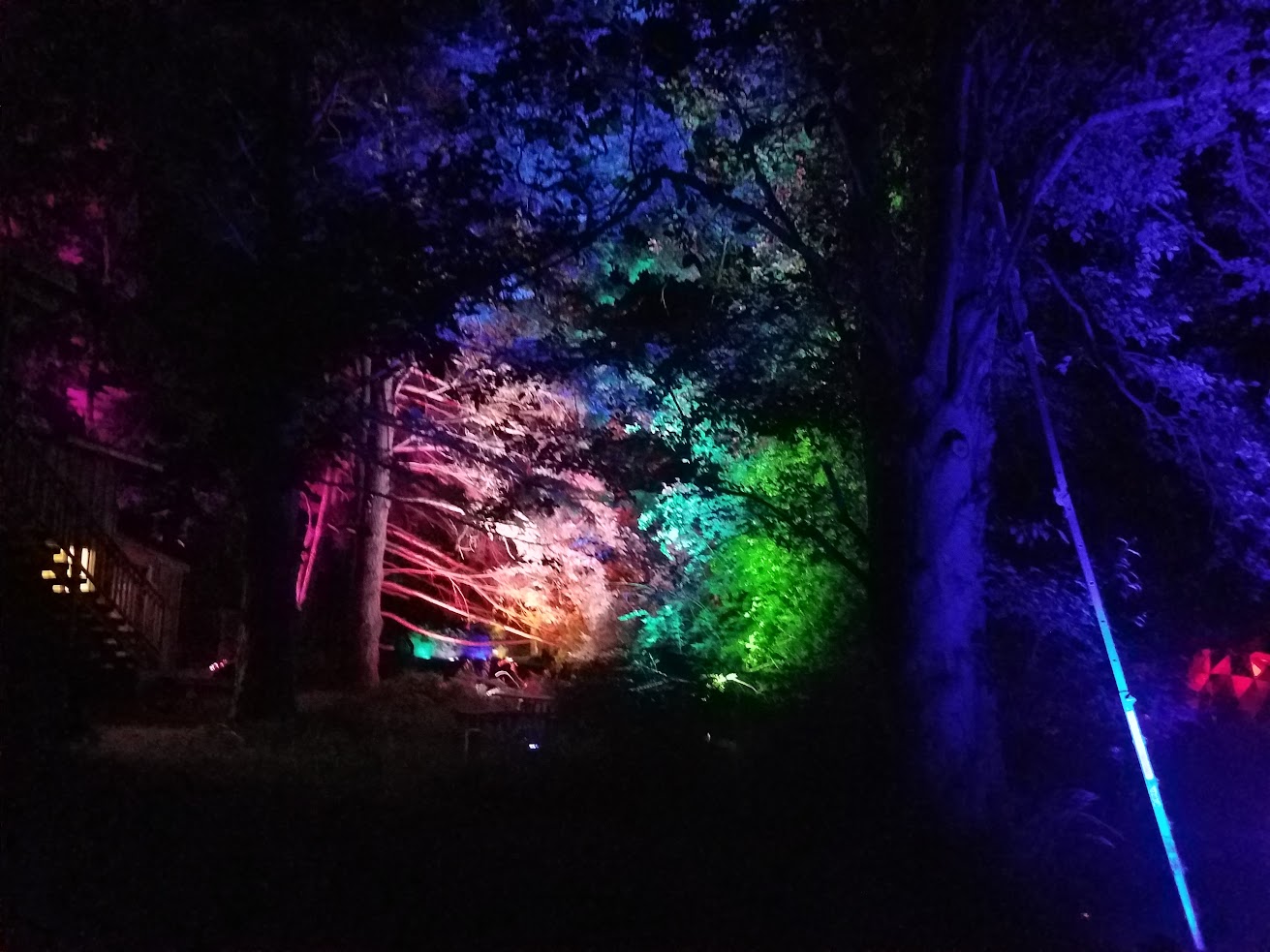Leaving Toorcamp, I felt conflicting emotions. These developed further after some thoughts and while compiling the Toorcamp presentations.
1. I could have spent more time getting to know the people at my campsite (Camp for Misfit Toys). It was a last-minute campsite for people who didn't know anyone else, who most frequently were at their first Toorcamp. And they were all interesting and unique people. However, in my rush to see everything at Toorcamp I didn't get to know them well.
2. Last Toorcamp I focused on talking to many people (without personal projects to work on). I remembered only a few after the camp was over. This time I focused on personal projects, like soldering a TV-B-Gone, and trying some other things, and less on talking to people. While these are different approaches, what's left with me after Toorcamp is mostly what I learned from talking to other people, such as what projects they were working on (related notes and keywords of which I saved on my phone for later). This is probably the most useful.
3. I spent too much time more drunk than preferred. Several of my phone notes are from times I don't remember from some sort of combination of cider (cider lovers rejoiced at the grocery in Eastsound due to its flabbergasting collection of the stuff) and other beers (but I can't deny that Pike Monk's Uncle Tripel Ale (purple can) was fantastic and enhanced the experience). I feel like I lost the chance to connect with people more deeply due to being forgetful while tipsy.
On the plus side the lighting effects the Toorcamp team placed to light up the night sky and dark trees were gorgeous and once brought me vividly back to the pine trees of Rome.
 |
| Courtesy of @macklikeaduck |
As in the resolutions in the 2016 presentation, here are some new ones for the next two years (and my phone notes):
1. Really start soldering. I'll get a desk, a soldering iron, a fume extractor, and a workspace to hold components, and finally start soldering kits and learn how to use a breadboard and wires.
2. Actually take the radio ham exam. Tried the week after Toorcamp but the contact was not amenable so I'll set up to take it elsewhere. June 2018 was the last month before a different version of the exam comes into use, so I'll study that guide instead.
3. Hardware hacking?
4. Cyberchef
5. DeviantOllam's CarolinaCon talk about Liquor
6. DJ lobsterdust
7. Jim's famous hackerbourbon list
8. Johann Sebastian Joust (kinda stupid though)
9. Milky Tracker, protracker for amiga (tried but failed, now to get a VM of an amiga)
10. NodeMCU esp-12e module
11. Security+
12. Quantize playing (?)
13. Script to automate getting a ticket on Orcas Island Ferry website. Check for tickets not open for reservation vs yes (this one came to me while pretty high).
14. Strapbook
15. Trash-grass
16. Play with WS2812B LED individually-addressable strips.
Resolutions for Toorcamp 2020 (if I wind up going):
1. This time, actually take a car, by ferry, to the island. It makes life a lot more convenient. For instance, with a rental car I won't need to waste most of an afternoon hitchhiking to the grocery to pick up victuals.
2. Come with a girlfriend or wife? Anything can happen in 2 years... :)